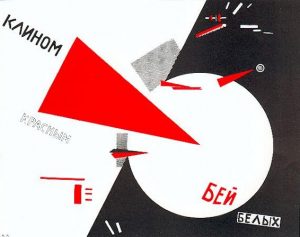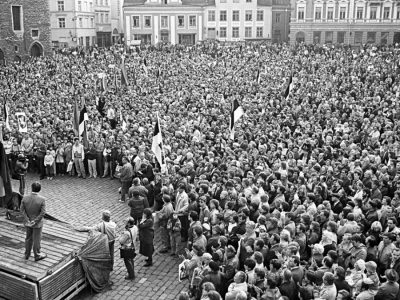
“Beat the Whites with a Red Wedge.” By El Lissitzky – Public Domain
For your fourth blog post, use the resources in Seventeen Moments of Soviet History (1921 and 1924) to examine a significant aspect of the Russian Revolution. Make sure to check out and use the primary materials. You should also consult the Freeze text (the rest of Chapter 9 and Chapter 10).

